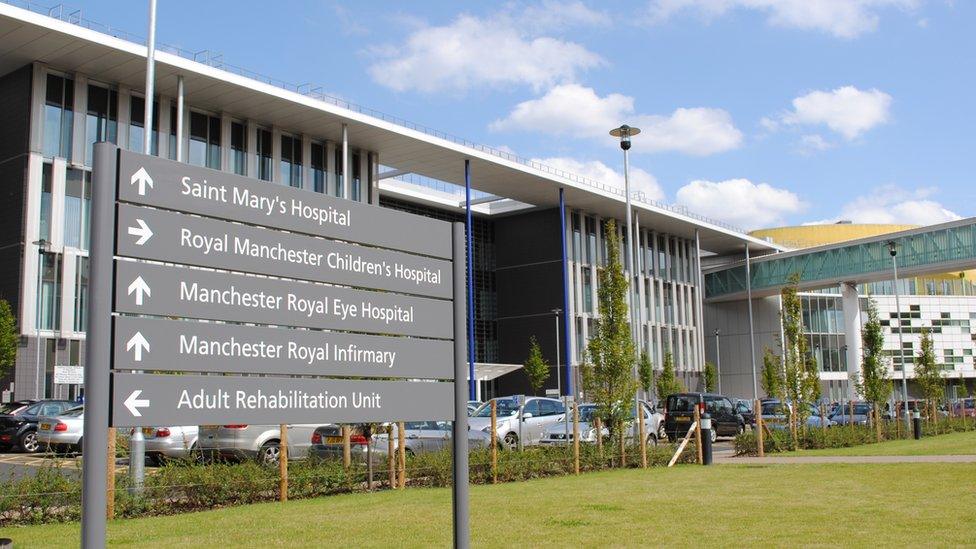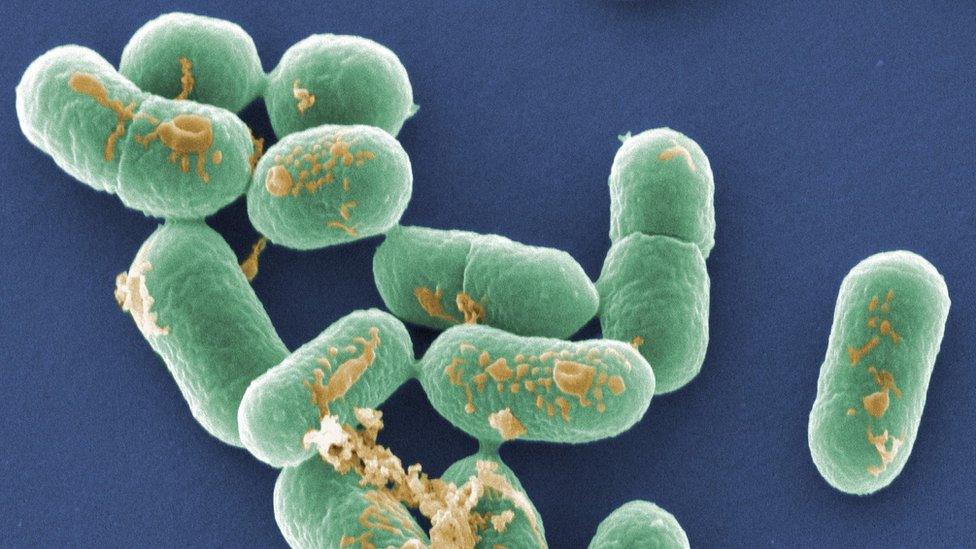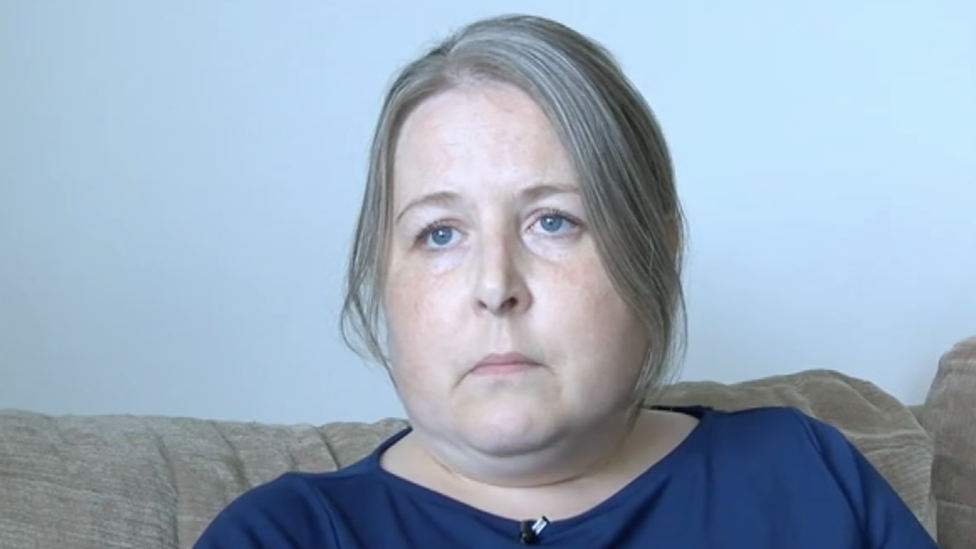Listeria outbreak: Health secretary orders NHS food review
- Published

Health Secretary Matt Hancock says he is "incredibly concerned" by the outbreak
A "root and branch" review of hospital food has been ordered by the health secretary after two more deaths were linked to an outbreak of listeria.
The number of deaths related to pre-packed sandwiches and salads at hospitals had risen from three to five, Public Health England said on Friday.
It said evidence suggested the deceased ate the products before 25 May.
Products from the Good Food Chain, which supplied to 43 NHS trusts, have been withdrawn and production halted.
"I have been incredibly concerned by this issue and strongly believe that we need a radical new approach to the food that is served in our NHS," Health Secretary Matt Hancock said.
"I have instructed the NHS to conduct a root and branch review of hospital food."

Two deaths announced last week occurred at Manchester Royal Infirmary
The latest announcement from PHE takes the number of confirmed cases from six to nine, at eight NHS trusts across England.
Dr Nick Phin, deputy director of the National Infection Service at PHE, said there had been no new cases in over two weeks.
"We would have expected most cases to have appeared by now," he said.
"We've taken steps to make sure the product is no longer distributed, and therefore the public and the NHS patients are safe."
Last week, PHE confirmed two patients from Manchester Royal Infirmary and one at Aintree Hospital in Liverpool had died.
It is not yet known where the latest two victims were receiving treatment.
Manchester University NHS Foundation and Aintree University NHS Foundation Trust said the new cases did not relate to them.

Listeria is a bacterium that can cause food poisoning
A listeria infection can cause a small amount of discomfort but is more likely to seriously affect pregnant women, the elderly and those with a weakened immune system.
The first case showed symptoms on 25 April and sandwiches and salads were withdrawn on 25 May, as soon as a link with the cases was suspected.
The Good Food Chain had been supplied with meat produced by North Country Cooked Meats, which subsequently produced a positive test result for the outbreak strain of listeria.
In a statement, it said it was co-operating "fully and transparently with the Food Standards Agency and other authorities" and said it hoped the inquiry would be pursued with "urgency so the wider industry can learn any lessons as soon as possible".
"Our thoughts and deepest sympathies are with the families of those who have died and anyone else who has been affected by this outbreak.
"The underlying cause of it remains unclear."

What is listeria?
Listeria is a bacterium that can cause a type of food poisoning called listeriosis
Normally, the symptoms are mild - a high temperature, chills, feeling sick - and go away on their own after a few days
But in this outbreak, the cases occurred in people who were already seriously ill in hospital and they are most at risk of severe infection
Listeria can then cause damage to organs, spread to the brain or bloodstream and be fatal
In 2017, figures show there were 33 deaths linked to listeriosis in England and Wales
Many types of food can become contaminated with listeria such as soft cheeses, chilled ready-to-eat foods like pre-packed salads, sandwiches and sliced meats, and unpasteurised milk products
Pregnant women are advised to steer clear of soft cheese for this reason
To reduce the risk, the NHS advises people keep chilled food in the fridge, heat food until it is piping hot and not eat food after its use-by date

PHE said it had been analysing previously known cases of listeria from the past two months to see if they were linked.
"To date, there have been no patients linked to this incident outside healthcare organisations, but we continue to investigate," Dr Phin said.
"Swift action was taken to protect patients and any risk to the public is low.
"PHE is continuing to analyse all recent and ongoing samples of listeria from hospital patients to understand whether their illness is linked to this outbreak."
- Published7 June 2019

- Published10 June 2019
